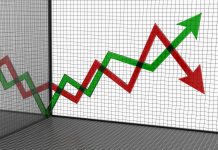“I have one lamp by which my feet are guided, and that is the lamp of experience. I know of no way of judging the future but by the past.” – Patrick Henry, 1775.

Unprecedented is the word being used extensively now in the analysis of the global pandemic Covid-19 and its impact on the economy and human life. Yes, in terms of global spread, the human toll it has taken, the scare it has triggered and devastating impact on the global economy, it is indeed unprecedented. Also, this crisis has caused unprecedented uncertainty landing experts in various fields ranging from biology and medicine to economics, in confusion in providing the right kind of advice. From the market perspective, we don’t have precedence from history to tell investors with certainty and total confidence as to how they should respond. It is a fact that all of us have been caught on the wrong foot.
But we have to move on. And therefore let us use our knowledge and all the experience that we have to arrive at a strategy that will hold us in good stead as we limp back to normalcy.
It is a fact that the virus will spread further. Also, a vaccine that can be universally used is at least one year away. Barring some medical miracle, the virus will linger for some more time before it fades. Projections are based on this assumption.
Assuming that economic activity will resume in H2 of 2020 the IMF has projected global GDP to contract by 3 percent this year. This 6.3 percent cut in growth – from 3.3 percent growth to 3 percent contraction – is also unprecedented. In this baseline scenario IMF expects smart recovery in global growth by 5.8 percent in 2021. While advanced economies are expected to contract sharply, India is expected to grow by 1.9 percent this year and 7.4 percent in 2021. If this likely scenario plays out, markets can be expected to bounce back sharply much before the real economy does. We know from experience that the bounce backs from the previous crises have been impressive, globally. In India the markets bounced back smartly from the crashes of 1992, 2000 and 2008-09 giving handsome returns to investors, provided they stayed invested. In retrospect all losses were notional, not real. But, if investors redeem at the lows, notional losses will become real.
We have only one piece of history! And what does market history tell us?
| Sensex high | Date | Sensex low | Date |
| 4546 | 02-04-1992 | 1980 | 27-04-1993 |
| 4643 | 12-09-1994 | 2713 | 04-12-1996 |
| 6150 | 14-02-2000 | 2156 | 03-10-2001 |
| 6249 | 09-01-2004 | 4227 | 17-05-2004 |
| 12671 | 11-05-2006 | 8799 | 14-06-2006 |
| 14723 | 09-02-2007 | 12316 | 16-03-2007 |
| 21206 | 10-01-2008 | 8701 | 24-10-2008 |
| 20509 | 31-12-2010 | 15454 | 01-12-2011 |
| 29361 | 01-02-2015 | 23002 | 01-02-2016 |
| 41945 | 17-01-2020 |
It is evident from the table that booms have been followed by crashes and crashes have led to sharp recoveries, which took the markets to higher and higher levels. The present crash would be no different. But it is important to appreciate the fact that the peaks and troughs of the market will be known only in retrospect. Therefore, the only strategy, and the best one too, for the investor is to invest systematically unmindful of the short-term ups and downs in the market. Investors should remember that stocks are available at attractive valuations during periods of pessimism. The pessimistic scenario will change ushering in good times!










Good analysis. Of course empirical and retro-inspection of economy. Kindly, suggest for small investors; big , professional and daily players are earning throughout, whether market is high or low, but loosers are small investors, who withdrew the FDs from banks and intered into market for better gain than lowing bank interests. It’s true again, now in coming years biology and environment will govern world economy, Indians are in transition phase under several illusions; most of us still do not spend much rather save for uncertainties in future. Prof. A. P. Mishra
Excellent address by Dr. VKV Chettan.
Nice
Very nice for betterful knowledge
Good observation & advise Dr,VKV